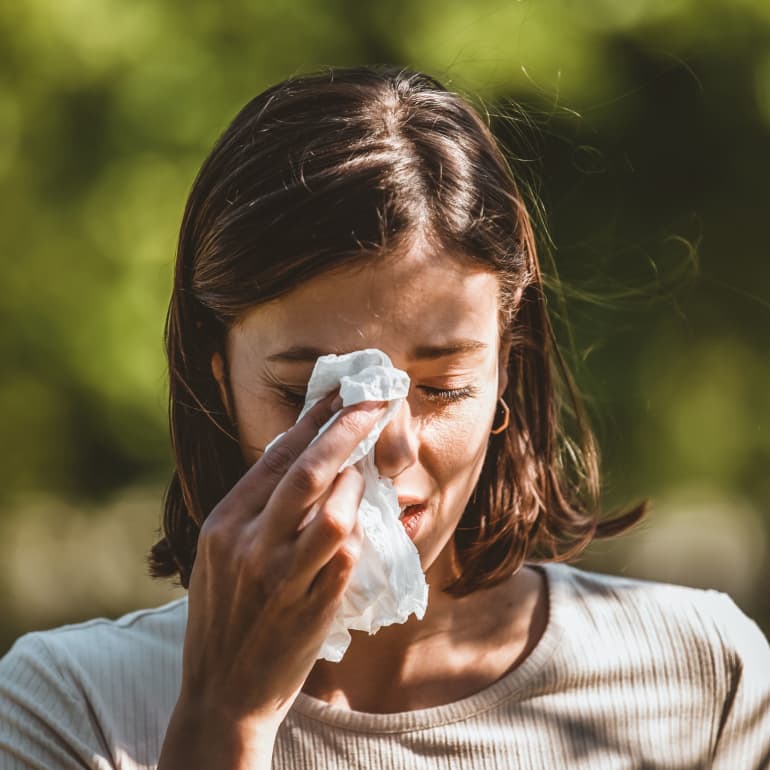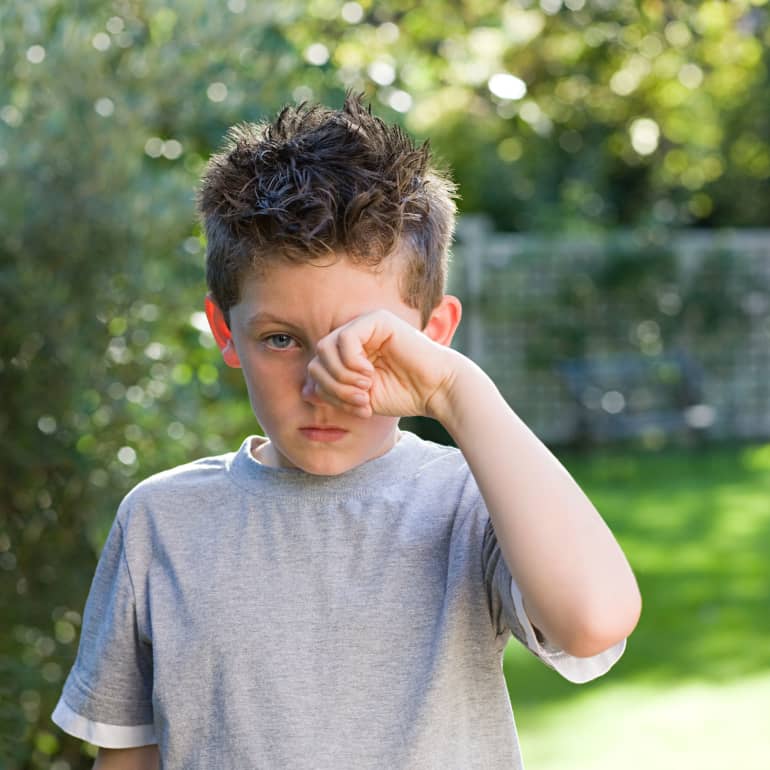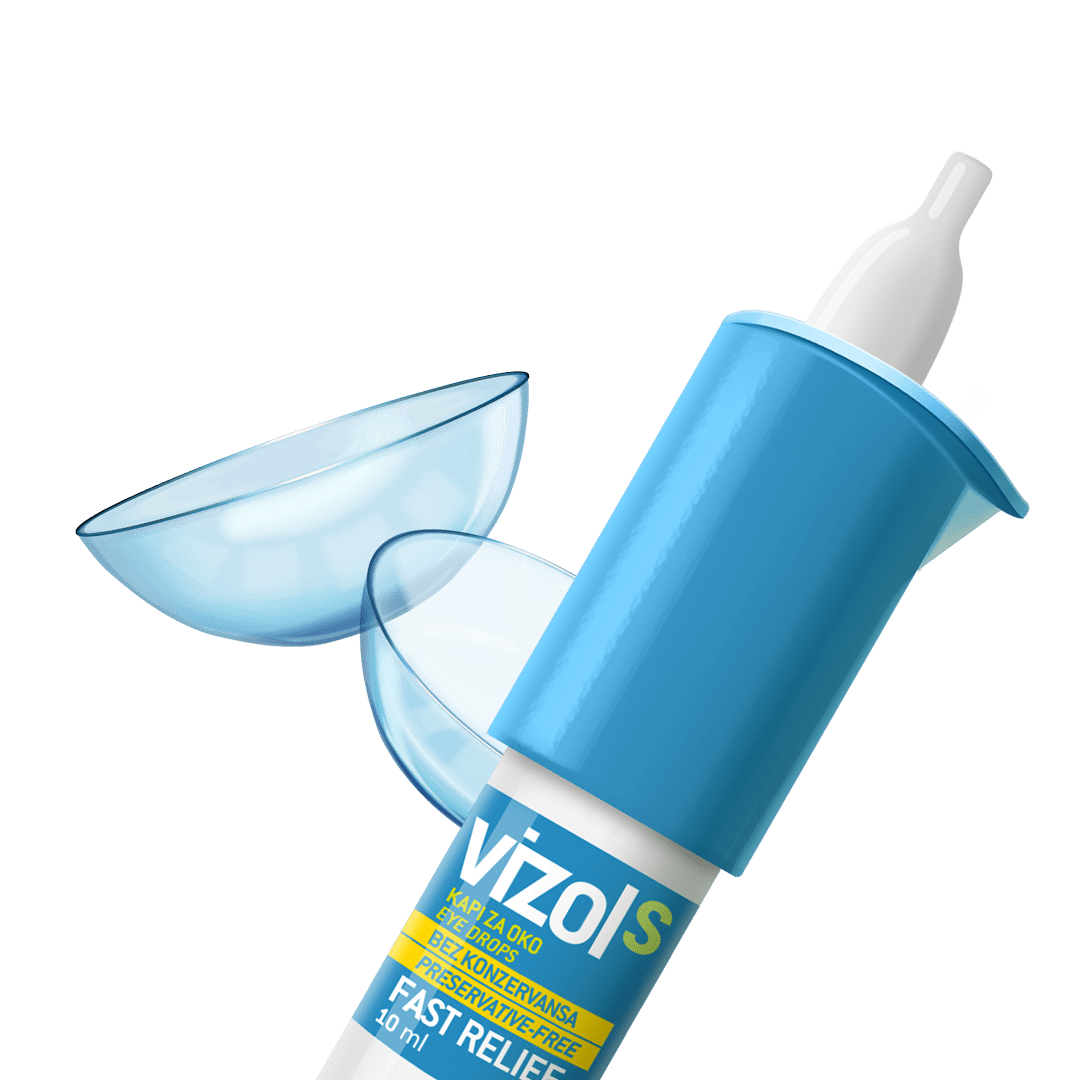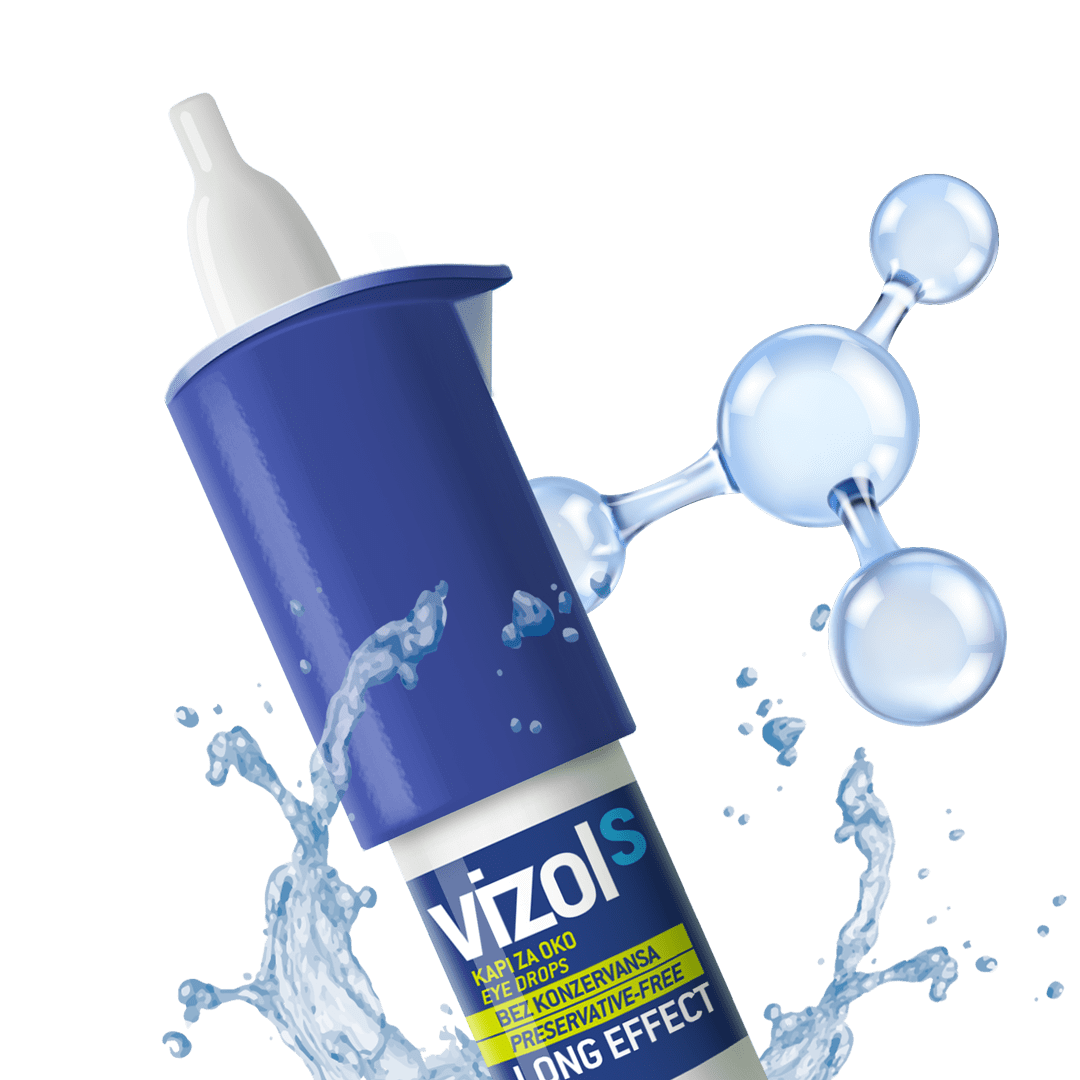Causes and symptoms of itchy eyes
When the ocular surface is exposed to allergens, an allergic reaction occurs. It activates the release of histamine, which causes itching, watery eyes and red eyes. In such cases, you should avoid rubbing your itchy eyes because it can lead to an even greater release of histamine and worsening of symptoms. In addition, rubbing can damage the ocular surface, which can cause additional problems.
People who wear contact lenses may experience reactions to solutions for preserving and cleaning lenses. They can cause itching, redness and inflammation. Such allergic reactions occur due to a particular preservative present in the solution. However, itchy eyes most often occur as a symptom of allergies or allergic conjunctivitis.










